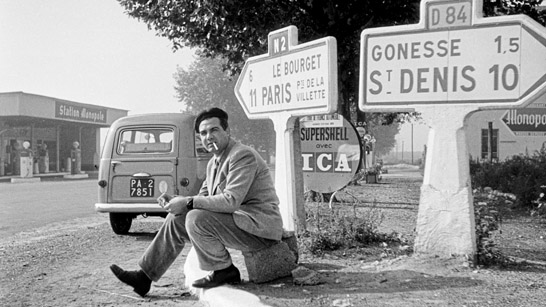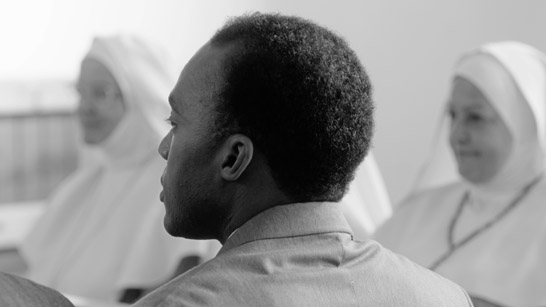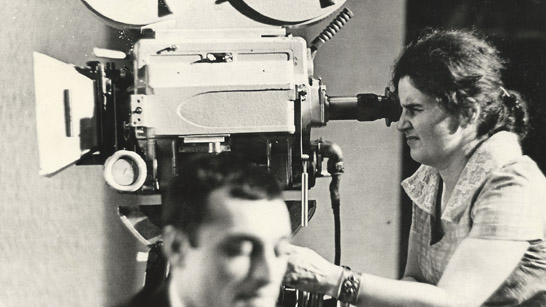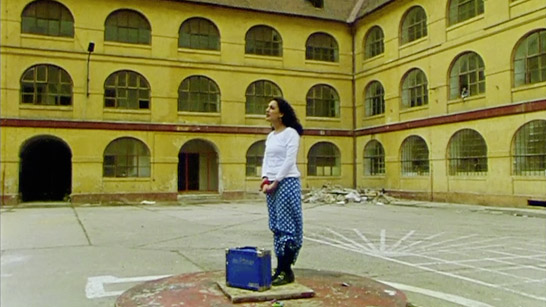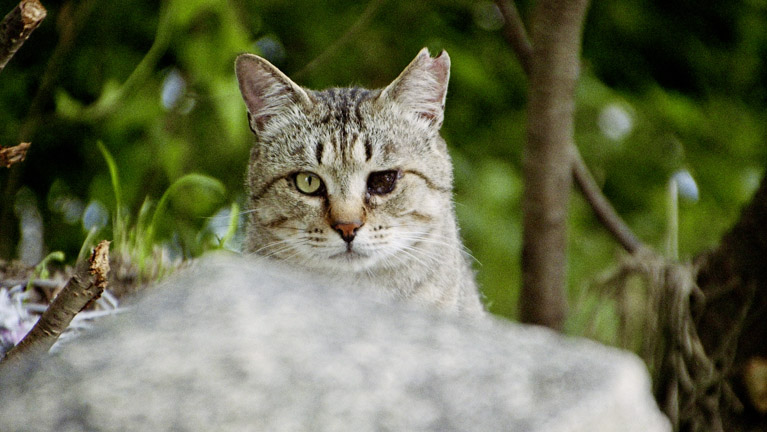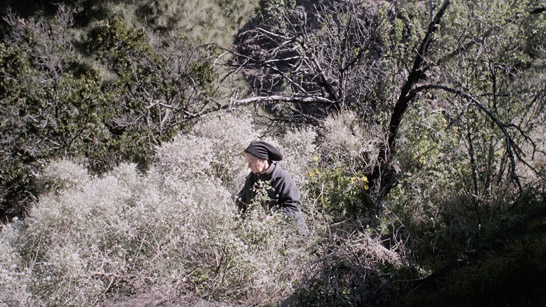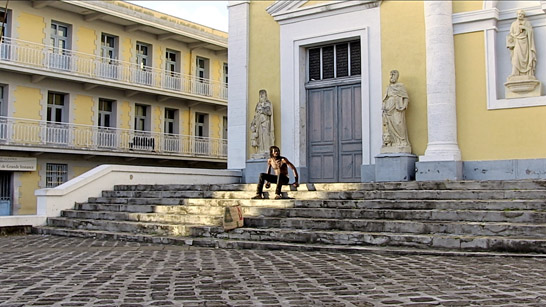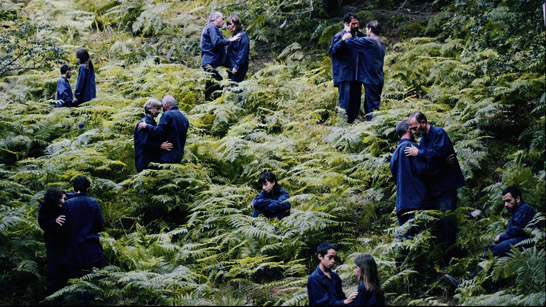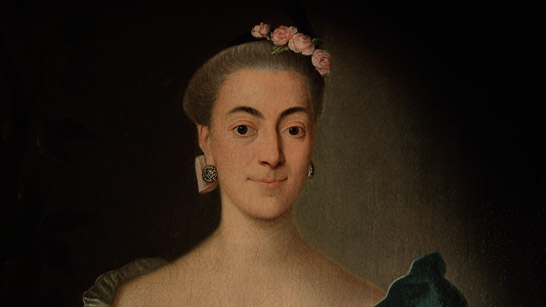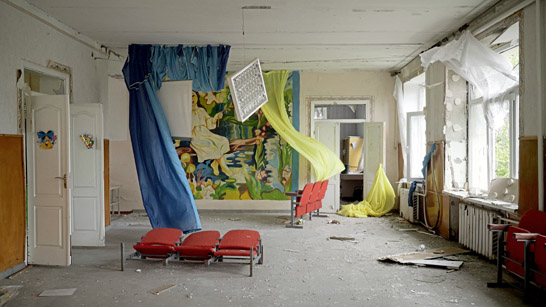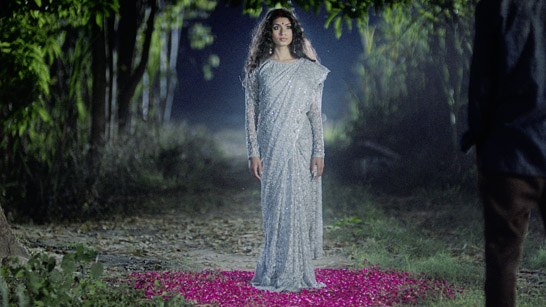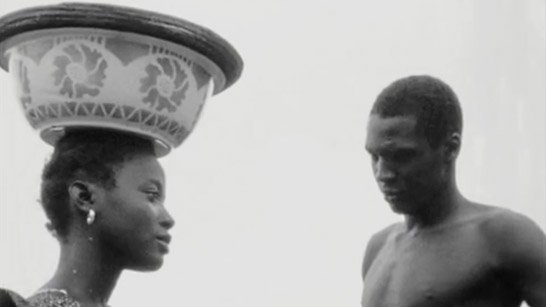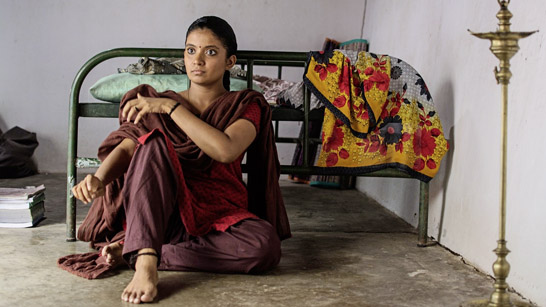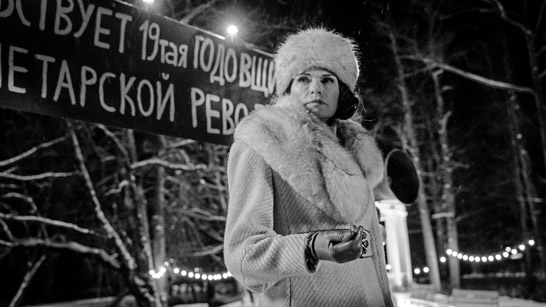Please note
The search cannot be combined with filters.
As Sicilian journalist Giuseppe Quatriglio turns 90, his daughter starts filming him. When he dies, she keeps on filming. Boxes become archival materials, as journeys, women and post-war Europe come to the fore. And in the end, there is a father.
Frantz Fanon was a renowned politician and decolonialisation activist. This feature focuses on his visionary social therapy methods during his time as a psychiatrist in Algeria from 1953 to 1956. A piece of sober anti-racism.
HKW 2 - Safi Faye Hall
Greatness paired with modesty: 93 years old and a daughter, world-famous director Lana remembers her mother Nutsa, Georgia’s first female filmmaker. A cinema legacy that revolves around being human in dark times: feminist, loving, critical of violence.
Arsenal 1
Subtitles: English
Cinema Betonhalle@Silent Green
Subtitles: English
Delphi Filmpalast
Subtitles: German
Looking for clues about the “Chaplin of Theresienstadt”, ghetto cabaret artist Karel Švenk, Schönemann meets his acquaintances and creates an intergenerational network of memory. Laughter was a form of defence. Resistance means commemoration.
Akademie der Künste
An ample community of cats has set up home around the Shinto shrine in Ushimado. Some local residents take care of them, others are disturbed by their mess. Kazuhiro Soda observes their co-existence with kindness, precision and occasional involvement.
Cinema Betonhalle@Silent Green
“The United States of Fonda” is the motto of this three-hour autobiofilmographical monument, put together with cinematic passion and editing verve for a president that will only ever have existed on the big screen: Henry Fonda.
Three sisters on the Canary Islands, their everyday lives infused with a magical, meditative lyricism. Three life strategies without a breadwinner, narrated via the body, a mix of staging, observation and memory. Before the volcano, serenity arrives.
Cinema Betonhalle@Silent Green
Apartment blocks with no future are being torn down in Pointe-à-Pitre, Guadeloupe. Malaury Eloi Paisley follows those lost in the city through the empty streets. Their accounts form a valuable commodity, circulating in carefully developed relationships.
Cinema Betonhalle@Silent Green
HKW 2 - Safi Faye Hall
Cinema Betonhalle@Silent Green
A brother and sister are hibernating. Only the sister wakes up. Human hibernation blurs the boundary between people and animals. A thought experiment equal parts sci-fi and meditation, shot in searing images.
Free-floating yet rigorously structured, this essay film presents botanist and educationalist Catharina Helena Dörrien and her time in Orange-Nassau in the 18th century. Via regulations and floral formulas, nature philosophy and social policy converge.
HKW 2 - Safi Faye Hall
The destruction caused by the war against Ukraine is shown in lengthy tableaux. Intercepted phone conversations between Russian soldiers and their families set up a shocking parallel world. Sound and image stare each other in the face, stunned.
Cinema Betonhalle@Silent Green
Bhagole and Prabhata are an old couple, struggling with their farm’s debts. He decides to let himself be killed by a tiger to save his family. Their last night becomes a surreal love story. A mythological, expressionistic and deeply moving film.
Ngor loves Coumba with shyness but also determination in this wonderful docufiction, just as Safi Faye, who died last year, loves the Senegalese village that forms its central setting: its workers, millet and peanuts. A letter from the country.
HKW 2 - Safi Faye Hall
Meena stubbornly refuses to speak. She loves a man from a lower caste. Her family thinks she is possessed and the spell is cast out of her. The day begins, a road movie starts, as religious fervour and insane misogyny are narrated in passing.
Akademie der Künste
Cinema Betonhalle@Silent Green
HKW 2 - Safi Faye Hall
In 1937, the Moscow art scene is in free-floating accord with Soviet power. Latvian artist Maria Leiko believes she is untouchable and unwittingly plays the role of her life: that of an innocent victim. A hugely topical historical allegory.
